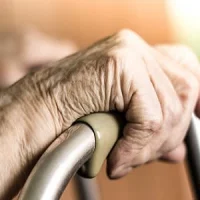In response to the many challenges faced by ICU survivors today, there has been an increasing need to relieve this burden. Despite that many clinical trials have been implemented to find new strategies, postintensive care syndrome is still a common possibility for both patients and families.
A recent study has identified key enablers and barriers faced by hospitals and patients when implementing ICU follow-up clinics and peer support groups. The study aimed to help identify ways in which better care coordination can be provided for critical care survivors.
In two collaboratives, researchers conducted a qualitative inquiry involving clinicians from 23 different sites, across three different continents. To organise and analyse this data, a Consolidated Framework for Implementation Research (CFIR) was used.
Results from the study identified ten enablers for implementing successful ICU follow-up clinics and nine barriers which would stop their implementation. It was identified that patient stories to promote human connection and also hospital administration interest were key enablers for ICU follow-up clinics. Whereas the major barriers were lack of access to the clinic for patients and family and restricted funding.
For the implementation of peer support groups, nine enablers and five barriers were identified. Using the CFIR, researchers were able to categorise the enablers of peer support groups into three constructs: characteristics of the intervention, inner settings (factors through which implementation can occur) and outer settings (factors which affect the organisation itself).
Of the top enablers, being part of an international collaborative, systems to support the peer groups, and successfully engaging patients and family to attend were identified as key enabling factors for peer support groups. It was found that the barriers were mainly a result of intervention characteristics; the most common being limited attendance.
Overall, CFIR identified slightly more enablers than barriers for the implementation of both ICU follow-ups and peer support groups. The findings from the study are helpful in the identification of challenges and future opportunities that hospital leaders can use to improve long-term outcomes for ICU survivors.
Source: Critical Care Medicine
Image Credit: iStock
References:
Haines, KJ et al. (2019) Enablers and Barriers to Implementing ICU Follow-Up Clinics and Peer Support Groups Following Critical Illness: The Thrive Collaboratives*. Critical Care Medicine, 47(9): 1194-1200
Latest Articles
ICU, Intervention, peer support, ICU survivors' burden, ICU survivors, post intensive care syndrome, Improving Outcomes for ICU Survivors, Consolidated Framework for Implementation Research, CFIR, enabler, barrier, ICU Follow-Up Clinic, peer support group, postintensive, postintensive care
A recent study has identified key enablers and barriers faced by hospitals and patients when implementing ICU follow-up clinics and peer support groups.










